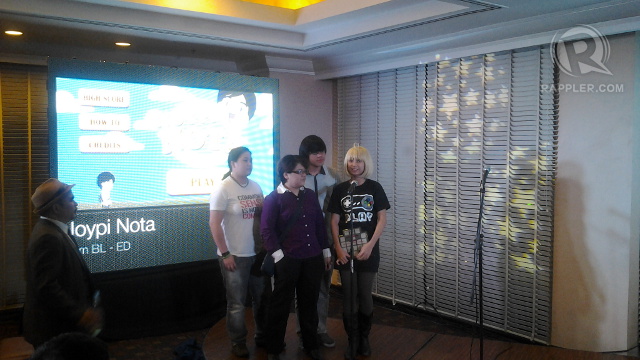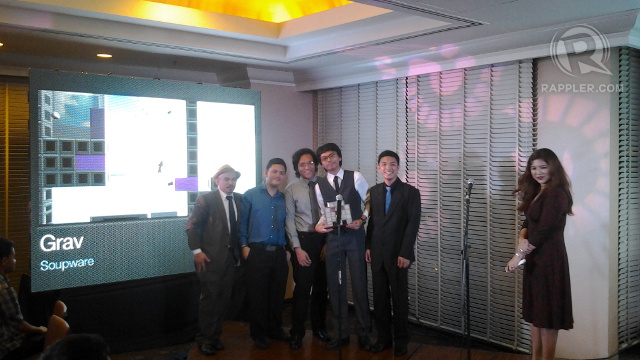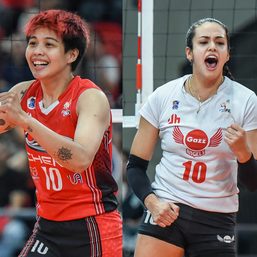SUMMARY
This is AI generated summarization, which may have errors. For context, always refer to the full article.

MANILA, Philippines – It was supposed to be a reconnaissance mission, as some first-person shooters might explain it.
I was supposed to get in, get the info, get out, and get to the extraction point before things got messy. It was supposed to just be a awards ceremony for up-and-coming developers.
I stumbled into something far larger, however. I attended this year’s Philippine Game Development Festival (PGDF) without knowing it, and the repercussions of how we see Filipinos as a potential game-making community could pave the way for a new future in Philippine game development and the fostering of Pinoy game changers.

Furthering development
Held on December 8 at the Ascott Hotel in Makati, the Philippine Game Development Festival awards night actually encompassed not only the awarding of the grand winners of the Open and Master Classes for Game On! Philippines 2012. It also paid tribute to the country’s game development initiative by handing out awards to outstanding games released by the Philippine game development community this year.
In addition to awards for excellent games, the event itself held a very important role in fostering the development community. While the video game development industry is expected to reach US$82 billion by 2017, the Philippines isn’t making an active bid to be a part of this growing platform.
Alvin Juban, president of the Game Developers Association of the Philippines (GDAP), explained before the start of festivities that around the Philippines, there are an estimated 3,000 people working in professional game development. In contrast, he added, 4 companies in Vietnam have a combined total of around 10,000 people working to make games.
He let the implications of fostering game development in the Philippines sink in. If the Philippines can tap into the video game industry on a larger scale, it would mean a lot of jobs and the potential for economic growth.
To do this, we’d need to make sure our education system catches up in terms of bringing up inquisitive minds who want to build new worlds and work with technology. We’d also need to create incentives that allow game development work to come our way.
The up and comers
Aside from food and game-themed live music, my personal highlight of the evening was watching the up-and-coming game developers walk up the stage to accept certificates of appreciation, as well as trophies for the best game of the Open Class and Master Class divisions.
The Top 3 Open Class competitors who were invited to attend the event were Team Sudo Make Games with their tower defense first-person shooter hybrid Eden, Team Amazings with the motion-enabled, endless running game Epic Run Time, and Team Soupware with gravity-manipulating platformer Grav. Only one of them could walk home with the trophy, however, and Team Soupware’s Grav (video above) took home the top honors for this division.
For the Master Class division, 3 teams were also invited for the awarding ceremonies — namely, Team BL-ED with Noypi Nota, Team Five Keys with The Last Stand: The Battle of Tirad Pass, and Team Taking Turns with Shoot Me Not. In this case, the winner of the Philippine Heroes-themed Master Class division was Team BL-ED with their rhythm game Noypi Nota.

For the future
The hope of the GDAP for the future of the PGDF award ceremonies is that the judging of both professional and amateur games will become more complex, with more entries from new studios and student teams, and more types of games offered for judges to play and think about.
At the most basic level, however, spending a month to build a game with your fellow students is an act that’s certainly worth its weight in gold. It’s an experience in and of itself — one that announces to the world that you’ve gone and built a world in miniature that everyone can enjoy. It’s also one that brings you to the eyes of professionals, who may take interest in your abilities.
The experience, the rush of building, and the feeling of doing something you love: these are 3 things that no bulked-up super soldier, stealthy assassin-spy, or intrepid plumber can take away from these developers. – Rappler.com
Add a comment
How does this make you feel?







There are no comments yet. Add your comment to start the conversation.